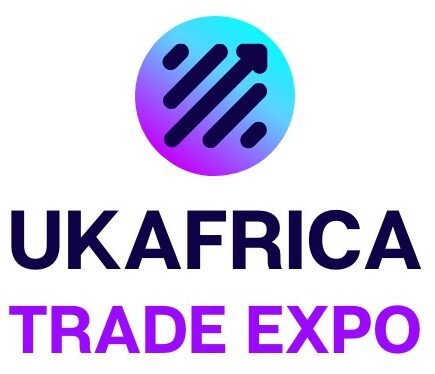Prepared by: UK-Africa Trade Expo / Prince Kamari Ademiluyi
Date: December 10, 2024
1. Introduction
Africa stands at a pivotal moment in its economic history. With a population exceeding 1.4 billion—the fastest-growing youth demographic in the world—the continent holds immense potential for trade, investment, and innovation. However, persistent challenges such as infrastructure deficits, financial exclusion, and inconsistent regulatory environments have hampered sustainable development.
This paper explores three transformative areas that can accelerate Africa’s economic growth and global competitiveness:
UK–Africa Trade & Foreign Direct Investment (FDI) – Strengthening bilateral trade agreements and investment to boost industrialization and job creation.
Artificial Intelligence (AI) & Automation – Leveraging digital innovation to drive productivity in key sectors like agriculture, healthcare, and finance.
Cryptocurrency & Blockchain Adoption – Enabling financial inclusion and crossborder trade efficiency through decentralized finance (DeFi) and digital assets.
Together, these three pillars of progress can unlock Africa’s full potential, fostering sustainable economic development through technological transformation, strategic partnerships, and smart investment policies.
2. UK–Africa Trade and Foreign Direct Investment (FDI)
2.1 The UK’s Role in Africa’s Economic Development
The United Kingdom has long been a key trade and investment partner for Africa, with bilateral trade volumes reaching £33 billion in recent years. Following Brexit, the UK has aggressively pursued new trade agreements with African nations, positioning itself as a major stakeholder in Africa’s economic future.
Key UK-Africa Trade Benefits:
Tariff-Free Exports – The UK’s Developing Countries Trading Scheme (DCTS) eliminates tariffs on over 99% of African exports, boosting trade efficiency.
Infrastructure Investment – UK-backed projects focus on transportation, renewable energy, and industrialization, addressing Africa’s logistical challenges.
FDI in High-Growth Sectors – UK investors are focusing on fintech, agribusiness, energy, and digital technology, key drivers of Africa’s economic transformation.
2.2 Challenges to Trade and Investment Growth
Despite growing trade relations, several barriers hinder progress:
Bureaucratic Trade Barriers – Complex customs procedures and non-tariff trade restrictions limit efficiency.
Infrastructure Deficits – Poor roads, ports, and digital infrastructure increase costs and deter investors.
Limited Access to Capital for SMEs – African small and medium enterprises (SMEs) struggle to secure affordable financing, stalling growth.
2.3 Strategic Trade & Investment Solutions
Bilateral Trade Agreements & Economic Partnerships – Strengthening trade pacts with key African economies, removing trade barriers and harmonizing import/export regulations.
Infrastructure Development & Smart Logistics – Investing in energy grids, modern ports, and e-commerce logistics hubs to lower transportation costs.
Investment in High-Growth Sectors – Encouraging FDI in AI-powered supply chains, renewable energy, and digital banking, ensuring long-term economic stability.
3. Artificial Intelligence, Automation & Digital Transformation in Africa
3.1 AI as a Catalyst for Economic Growth
Artificial Intelligence (AI) is emerging as a powerful force in Africa’s digital economy, with applications in healthcare, agriculture, financial services, and governance. Early AI adoption presents an opportunity to leapfrog traditional development models, positioning Africa as a global innovation hub.
Agriculture – AI-driven precision farming improves crop yields by monitoring soil conditions and optimizing resource use.
Healthcare – AI-powered diagnostics enhance early disease detection and remote patient care.
Finance – AI automates credit scoring, expanding financial inclusion to millions of unbanked Africans.
Education – AI-driven e-learning platforms provide quality education to underserved communities.
3.2 Challenges to AI Adoption in Africa
Skills Gap – A shortage of AI experts and data scientists limits adoption and innovation.
Data Infrastructure – Inconsistent data collection and storage make it difficult to train AI models.
Connectivity Issues – Many African regions lack reliable internet for AI-powered applications.
3.3 Strategic AI Solutions for Africa
AI Training & Digital Literacy – Expanding coding bootcamps, AI research hubs, and university partnerships to nurture local talent.
Investment in AI Startups – UK investors should support African AI startups, providing funding, mentorship, and market access.
AI-Driven Trade Platforms – Leveraging AI to optimize supply chains, streamline customs clearance, and enhance trade efficiency.
By prioritizing AI adoption, Africa can create millions of new jobs, boost economic productivity, and attract international investments in AI-driven solutions.
4. Cryptocurrency, Blockchain & Financial Inclusion
4.1 The Case for Cryptocurrency in Africa
Africa has one of the highest unbanked populations in the world, with over 60% of adults lacking access to traditional financial services. Cryptocurrencies offer an alternative financial system, allowing individuals and businesses to store, send, and invest money without reliance on banks.
Low-Cost Remittances – Crypto transactions significantly reduce remittance fees, benefiting Africa’s $90 billion remittance market.
Financial Access for the Unbanked – Blockchain technology provides secure, low-cost banking alternatives, enabling savings, loans, and micro-investments.
Stablecoin Adoption – Cryptocurrencies pegged to the U.S. dollar (stablecoins) can protect Africans from currency volatility and inflation.
4.2 Challenges of Cryptocurrency Adoption
Regulatory Uncertainty – Many African governments lack clear policies on cryptocurrency, creating market volatility.
Limited Crypto Education – Many potential users lack knowledge of blockchain technology and its benefits.
Cybersecurity Risks – Increased adoption raises concerns about fraud, scams, and hacking.
4.3 Path Forward for Crypto & Blockchain in Africa
Clear Regulatory Frameworks – Governments should develop pro-crypto policies that protect consumers while encouraging innovation.
Blockchain-Powered Trade Finance – Using blockchain to track, verify, and secure international trade transactions, increasing efficiency.
Crypto-Based Microloans – Expanding decentralized finance (DeFi) solutions to provide low-cost credit to African entrepreneurs.
5. Synergy: Combining UK-Africa Trade, AI & Cryptocurrency for Economic Growth
To maximize Africa’s economic acceleration, a three-pronged approach integrating trade, AI, and crypto is essential:
AI + Trade: AI-powered logistics, e-commerce, and supply chain optimization can enhance trade flows.
Crypto + Trade: Blockchain-based smart contracts ensure transparent, secure trade agreements.
AI + Crypto: AI-driven risk analysis improves crypto lending & financial services, boosting financial inclusion.
By aligning UK investment strategies with Africa’s digital transformation goals, billions in economic value can be unlocked over the next decade.
6. Conclusion & Recommendations
Africa’s future prosperity depends on strong trade alliances, AI-driven innovation, and financial inclusion through cryptocurrency. To achieve this:
UK & African governments must expand trade agreements and support AI innovation hubs.
Businesses & investors should leverage AI, automation, and blockchain to drive growth and efficiency.
Education & training programs must be expanded to create an AI and crypto-literate workforce.
Africa is not just a market—it is a global growth engine. With smart investments and strategic partnerships, the continent can lead the next wave of economic transformation.
Join the movement at UK Africa Trade Expo 2025—Shaping the Future of UKAfrica Business & Technology!
References / Suggested Readings
- United Nations Conference on Trade and Development (UNCTAD) – Reports on global trade and development, including specific insights on Africa.
- World Bank – Data and reports on financial inclusion, remittances, and infrastructure in Africa.
- African Union (AU) – Agenda 2063 documents focusing on technology development, education, and intra-Africa trade.
- OECD – Studies on AI governance, policy frameworks, and digital transformations in emerging markets.
- Central Bank Reports – National/regional central bank publications on cryptocurrencies, digital finance regulations, and fintech innovations.
Prepared by:
UK-Africa Trade Expo / Prince Kamari Ademiluyi 10th December 2024
This white paper is for informational purposes and does not constitute legal, financial, or investment advice. Stakeholders are advised to consult appropriate professionals and regulatory bodies when implementing strategies outlined in this document.



